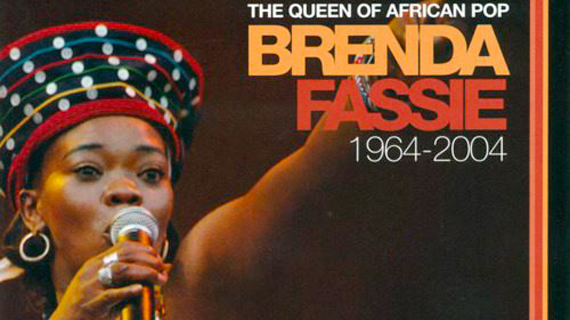Brenda Fassie: Origins, Family, and Early Life
Brenda Nokuzola Fassie was born on November 3, 1964, in Langa, a township near Cape Town, South Africa. She was the youngest of nine children in the Fassie family. Her father passed away when she was just two years old, leaving her mother, a pianist, to raise the family. Named after American country singer Brenda Lee, Brenda began singing at a young age, performing for tourists and church events with her mother’s accompaniment.
At 16, Brenda moved from Cape Town to Soweto, Johannesburg, to pursue a singing career. There, she joined the group Joy and later became the lead singer of Brenda and the Big Dudes.
Brenda’s early life in Langa, surrounded by a musically inclined family, laid the foundation for her remarkable career in the South African music industry
Brenda Fassie was more than just a musician; she was a cultural phenomenon whose music, personality, and legacy continue to influence South African music and the broader African music scene. Known for her powerful voice, bold stage presence, and unapologetic stance on social issues, Brenda Fassie became one of Africa’s most beloved and controversial music icons. Her life, filled with triumphs and challenges, shaped her into a figure of resilience, defiance, and raw talent.
1. Powerful Voice & Stage Presence
Brenda Fassie’s voice was the heartbeat of her music. Her deep, soulful, and dynamic vocal range allowed her to traverse multiple genres, from pop to reggae, disco to traditional South African sounds. What made her voice truly stand out was its ability to evoke raw emotion, connecting deeply with her audience. Whether it was through the joyful beats of her dance tracks or the heart-wrenching tones in her ballads, her voice captured the essence of South African life, struggles, and triumphs.
Her live performances were just as impactful as her music. Brenda possessed a unique energy on stage that resonated with her fans, drawing them into her world. Her fearlessness and energetic presence made her concerts unforgettable experiences that showcased not just her vocal prowess, but also her deep connection with the crowd.
2. Iconic Hits
Brenda Fassie’s catalog of music is a testament to her extraordinary talent and her ability to connect with her audience through song. Some of her most iconic hits have stood the test of time, becoming anthems across South Africa and beyond.
- “Vulindlela” (1997): Perhaps her most well-known track, Vulindlela became a national anthem for the post-apartheid South Africa. With its upbeat tempo and empowering lyrics, it celebrated the hope and optimism of a new era. The song resonated not only with South Africans but with people all over Africa who were navigating their own political and social transitions.
- “Weekend Special” (1985): This song helped to cement Brenda’s place in South Africa’s pop music scene. It was an infectious track that made its mark on the charts and solidified her reputation as one of the leading female artists of her generation.
- “Black President” (1990): A tribute to Nelson Mandela, this song captured Brenda’s political consciousness and her support for the anti-apartheid movement. The track showed her ability to blend music with activism, making her voice a tool for social change.
3. Cultural Icon
Brenda Fassie transcended her role as a musician. She became a symbol of resilience, defiance, and social change, particularly during the struggle against apartheid. Her music was not only a source of entertainment but a form of protest and commentary. As one of the most prominent black female artists of her time, she spoke to the challenges faced by South Africans and African communities more broadly.
She was one of the first artists to openly address topics such as sexuality and identity in her music, helping to break down barriers for marginalized groups. Her fearlessness to speak about her personal experiences, both on and off stage, made her a trailblazer and a cultural figure who resonated deeply with audiences from all walks of life.
4. The ‘Madonna of the Townships’
Brenda Fassie’s bold persona and musical versatility earned her the nickname “Madonna of the Townships.” Much like the American pop icon Madonna, Brenda was known for her eclectic style, boundary-pushing music, and a relentless drive to make her voice heard. She was unapologetically herself, both in her music and her personal life, and became a symbol of female empowerment and independence in a male-dominated industry.

Her fashion, music, and demeanor were often controversial, but they solidified her status as one of South Africa’s most influential cultural figures. She remained an enduring symbol of the power of music to challenge societal norms and uplift the voices of the oppressed.
5. Controversial and Outspoken
Brenda Fassie’s life was as eventful as her career, marked by both brilliant highs and tragic lows. She was known for her rebellious nature, outspoken personality, and public struggles, particularly with addiction and tumultuous relationships. Despite these personal challenges, she remained a beloved and resilient figure who refused to let her setbacks define her.
Brenda’s outspoken approach to issues like race, gender, and sexuality often put her in the spotlight, sparking debates and discussions about her actions and statements. However, her willingness to be open about her struggles made her more relatable to her fans, further cementing her status as a cultural icon.
6. Awards and Recognition
Throughout her career, Brenda Fassie received numerous accolades that celebrated her incredible contributions to South African music. She won multiple South African Music Awards (SAMAs) and was widely recognized as one of Africa’s most talented and influential artists. Brenda’s awards were not just for her music; they acknowledged her status as a cultural force that transcended borders.
Her recognition continued posthumously, with tributes pouring in from artists, fans, and political figures alike. Brenda’s impact on music and culture continues to be celebrated, and her legacy is preserved in the hearts of millions.
7. Impact on South African Music
Brenda Fassie is considered one of the pioneers of contemporary South African music. Her ability to blend pop with traditional African rhythms and sounds helped create a unique musical landscape that still influences South African artists today. She was instrumental in popularizing genres like kwaito, a form of South African dance music, and helped to elevate African pop music on the world stage.
Her music was often political, reflecting the social struggles of the time, particularly during apartheid. She used her platform to speak to the realities of South African life, and her influence continues to shape the sound of the country.
8. Her Unfinished Legacy
Brenda Fassie’s life was tragically cut short when she passed away on May 9, 2004, from a drug-related illness at the age of 39. Despite her early death, her legacy continues to live on. Her music still fills the airwaves, her story continues to inspire new generations of artists, and her life is celebrated through documentaries, tribute concerts, and even statues.
Her influence on South African and African music is undeniable, and her impact on the global stage remains profound. Brenda Fassie was more than just a singer; she was a symbol of freedom, strength, and self-expression, and her legacy will continue for generations.
Brenda Fassie’s life and career are a testament to the power of music to inspire change, to confront adversity, and to challenge societal norms. From her iconic hits to her fearless activism, she remains a cornerstone of African music history. Whether through her soulful voice, her boundary-pushing performances, or her legacy of resilience, Brenda Fassie will forever be remembered as one of the greatest artists to ever grace the stage.
Developmental story…. Brenda’s life story is more than just a series of events—it is an ongoing legacy that continues to inspire and influence generations of musicians and artists








